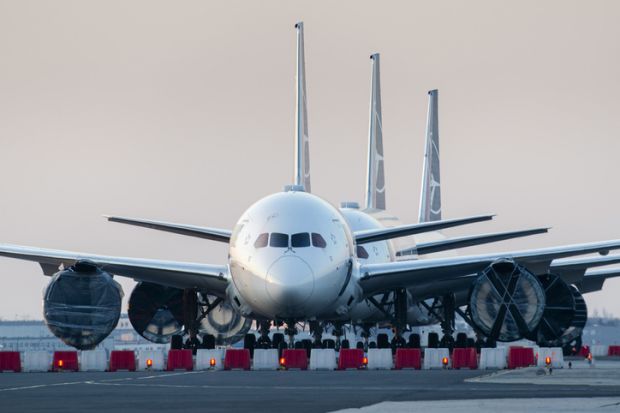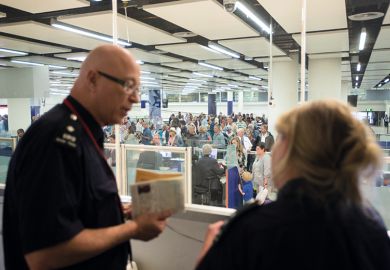UK universities increasingly placing restrictions on the amount of time academics can spend working abroad should “set off alarm bells” for the sector, with experts warning they limit global engagement.
A number of top institutions have introduced formal global mobility policies following the move to remote work during the coronavirus pandemic and to ensure compliance with Home Office visa rules that require the locations of international staff to be monitored and reported.
But critics argue blanket restrictions on long periods working abroad for all staff reflected a “compliance-first” mindset that made universities less open, less diverse, and ultimately less vibrant.
The policies represent a “hostile” model, said Jen Bagelman, professor of geography at Newcastle University. “Defensive mobility policies like this should set off alarm bells for anyone who sees the university as a space of exchange – of people as well as knowledge.
“While framed as compliance tools, they limit global engagement, impact recruitment diversity, and are increasingly misaligned with the international ambitions of UK higher education.”
In addition, Bagelman warned that such policies, which impose greater bureaucratic hurdles around visas, tax compliance and social security, erect new structural barriers to hiring and retaining academics from the Global South.
“Researchers from lower-income countries are far less likely to be able to self-fund the compliance costs now expected of them, such as healthcare, visa fees, and legal advice.
“Meanwhile, wealthier candidates from OECD countries are more likely to afford these hidden costs, further entrenching disparities.”
King’s College London’s global staff mobility policy prevents academics from spending more than 60 days outside of the UK per year.
Such policies place “onerous restrictions” on academics’ abilities to do their jobs, according to Chris Parkes, senior lecturer in history education at KCL.
“It’s creating this increased friction to doing anything international, whether it’s going overseas for case archival research or whether it’s bringing people into the UK for faculty exchanges or student exchanges or even for conferences,” they added. “The more of these rules that end up going in place, the more difficult it’s going to be.”
Other similar examples can be seen at top institutions such as the London School of Economics, the University of Oxford, the University of Cambridge’s international working policy, and the University of Edinburgh’s Working Abroad policy which limits international working to exceptional cases.
While the “mood music” has come from government, Parkes said these university policies were not helping their own international reputations. KCL’s rules made it more difficult to buy property overseas and impacted academics’ ability to plan extended research trips, they added.
“It’s just that little extra set of layers of approvals or potential disapprovals being put in place that’s really making it harder and harder to muster up the energy to do big and important academic exchanges.”
KCL said it has a legal requirement to ensure the university and its employees are compliant with UK and international laws and regulations.
“We advise our academics on a case-by-case basis to support this and enable research,” added a spokesperson.
Register to continue
Why register?
- Registration is free and only takes a moment
- Once registered, you can read 3 articles a month
- Sign up for our newsletter
Subscribe
Or subscribe for unlimited access to:
- Unlimited access to news, views, insights & reviews
- Digital editions
- Digital access to THE’s university and college rankings analysis
Already registered or a current subscriber?








